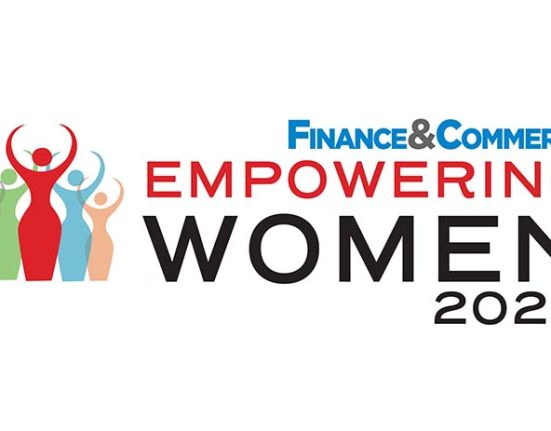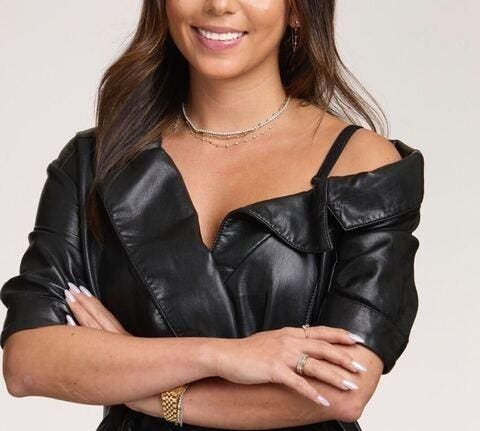Olivia Landau started The Clear Cut as a blog to educate her friends and family.
“My mom always told me I would be a terrible entrepreneur,” laughs The Clear Cut founder Olivia Landau. In our conversation on The Failure Factor podcast, she explained how she was told she’d be “an amazing employee” and deterred from following in her parents’ footsteps in the diamond industry.
Today, with the support of neither of her parents—nor a single investor in Silicon Valley—the fourth-generation diamond expert has built The Clear Cut’s revenue to $100 million.
However, as is the case with most entrepreneurial triumphs, success didn’t come without its share of doubt and struggles.
The accidental rebellion
Landau wasn’t trying to become an entrepreneur. Her parents, seasoned veterans in the diamond industry, advised her against it entirely. “My parents had always told me to never get into the diamond and jewelry industry because it was dying and antiquated.” She recalled during our conversation.
Still, Landau was compelled to learn more about the precious stones. She enrolled at the GIA (Gemological Institute of America) to become a certified gemologist until she “figured out what she’d do afterwards.”
Then, in 2016, Landau started The Clear Cut—initially an educational blog meant solely to help friends with their engagement ring purchase decisions. “This was just something fun that I did on the side to entertain myself.”
Something unexpected followed: strangers began contacting her, asking for custom designs. “It turned into this accidental side hustle where I looked up, and—after a year—I’d sold a million dollars of engagement rings through Instagram DMs.”
That’s when Kyle Simon, Landau’s then boyfriend, now husband and cofounder, entered the picture: Fresh out of Columbia Business School, he saw her million-dollar Instagram business and convinced her to think bigger.
So the pair did what almost anyone with a capital-intensive business idea would do: they attempted to raise outside capital.
The experts said it would never work—and she almost believed them
The diamond company that blew up without venture capital
Despite real traction and a clear demand, Landau and Simon were told their startup was not fundable. It was too niche, too personal, and too dependent on Landau herself.
“They said I couldn’t be the face of the business,” she explained. “We had to do more generic content and marketing,” she said.
Her personal brand wasn’t the only element investors and mentors believed she had wrong. They all had the same prescription: personality quizzes, viral gimmicks, tech features. None of them had asked what her customers actually wanted.
The most devastating feedback came from a founder Landau idolized. Over coffee, this successful entrepreneur likened The Clear Cut to her sister’s travel agency. “I don’t think anyone will invest in this business,” they said.
Landau left that meeting feeling crushed. She had actually talked to her customers. She knew they didn’t want gimmicks—they wanted guidance.
Landau and Simon were trying to make sense of a very real demand: smart, informed, modern couples wanted custom engagement rings without the absurd markup, gatekeeping, or outdated diamond industry antics. It was a real problem they could solve, but no one wanted to fund them. “We met with every single venture capital firm in New York and California. Every single person said that this is not scalable.”
Landau and Simon gave themselves a deadline to try to raise money, build something, and “see what happens.” Well, what happened was months of gut-wrenching rejection. “It was like a full-time job,” Landau recounts. “Most of the time, no one would get back to us.”
The breaking point came in an Italian town square. While on vacation with Simon’s family, Landau finally exploded. “We had a blowout fight right there in public,” she tells me. “I was like, when are you gonna realize this is a stupid idea? Let’s just move on!”
But Simon refused. “Give me a few more months,” he pleaded. “I promise it’s gonna work out.”
Doing things the hard way—on purpose
The Clear Cut started as an educational blog about diamonds.
Instead of continuing with their strategy to raise capital from VCs, they entered Techstars, a tech accelerator that gave them $120,000. Together with $700,000 from angel investors and customers—many of whom had bought rings from them—they scraped together enough to move forward.
“It wasn’t ideal, but I was like, Great, I’ll get to own more equity in the business, and I’ll have more control. And, I won’t have a board of people that don’t know what they’re talking about telling me what to do. So it worked,” she declared, smiling.
Despite being underfunded, they were able to maintain the freedom to do things their way. “We were intentionally doing everything extremely unscalably in the beginning,” she explained. This meant personally handling every customer interaction, manually sourcing each diamond, and managing orders one by one.
Why do things the hard way? “I don’t believe in building technology to solve a problem [before fully understanding the problem],” said Landau. “You have to ‘do’ the problem to build the proper solution.” By experiencing every pain point firsthand, they knew exactly what technology to build later—unlike competitors who built expensive features customers ultimately never wanted.
The ultimate validation
Their instincts were right. The Clear Cut thrived because of its personalized service; it doubled revenue annually for four straight years, and when COVID-19 hit, traditional jewelry stores shuttered, while Landau’s online positioning and high-touch model exploded. “Now it’s really funny, because we’re seeing a lot of businesses try to put a face to their brand,” she shared with a grin.
Today, The Clear Cut continues to grow profitably, staying true to the educational mission that sparked it all while expanding beyond engagement rings into fine jewelry. Their latest leap is Eunice, a proprietary AI engine launched in May. Unlike the personality quizzes and viral features investors once pushed them to build, Eunice solves real problems they discovered through years of manual work—predicting trends, tracking regional preferences, responding to cultural moments, and bringing pricing transparency to an opaque industry. The result? The Clear Cut achieved its strongest Q1 since 2022, despite industry-wide declines.
When I asked if she had any regrets about her unconventional path, Landau didn’t hesitate: “I don’t think I regret anything.”
The takeaway? If you’re building something that people don’t “get,” it could just mean you’re early. Let them call it a hobby and go build it anyway. As Landau said in our interview, “What’s the worst that can happen? It doesn’t work out, and then you just do something else.”
Megan Bruneau, M.A. Psych is a therapist, executive coach, and the founder of Off The Field Executive & Personal Coaching. She hosts The Failure Factor podcast featuring conversations with entrepreneurs about the setbacks that led to their success. Listen to her episode with The Clear Cut cofounder Olivia Landau on Apple and Spotify.





